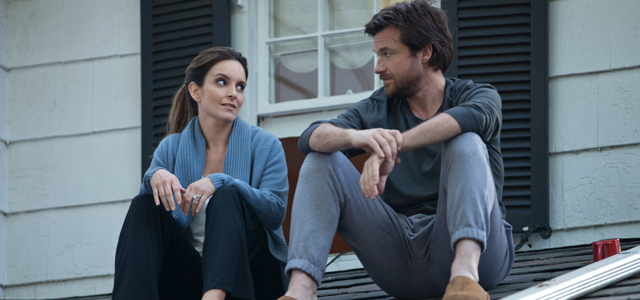Death. What happens next? Not to the deceased; those left in this life. Those who knew and loved the dear departed. How long will they grieve? What kind of legacy will be carried on?
We all want to know the impact our death will have. But none of us can live long enough to see what happens after we die. Quite the pickle. Help is at hand, though, for those seeking insight into what afterlife impact can look like.
Based on author Jonathan Tropper’s bestselling novel, This Is Where I Leave You is an all-star comedy, released this month at cinemas. From the grave, a deceased father controls his adult children.
Judd Altman (played by Jason Bateman), his sister (Tina Fey) and two brothers are forced to spend one week together in the family home. Their father’s will stipulates they must ‘sit shiva’, with their mother (Jane Fonda).
Sitting shiva is a Jewish tradition. Close relatives gather for seven days to grieve in the deceased’s home. Derived from Joseph’s period of mourning (Genesis 50:1-14), shiva is hardly a laughing matter. Tropper maintains he didn’t intend to mock the Jewish religion’s practices or traditions. Instead, he wanted to show how strange such customs are, to those who never practice them.
More than that, Tropper wanted to show how people who don’t claim to be ‘religious’ or have ‘faith’, can find comfort or purpose in religious rituals. Even though these adult kids do something they don’t believe in, This Is Where I Leave You indicates their participation may be unexpectedly positive. You may have experienced this. How grief subsides, when prayers, church services, or Bible readings are applied as rituals of soothing tribute.
But do we really want to force our family and friends to follow religious rituals they don’t believe? Such enforcement has no interest in long-term change or lasting impact. Death prevents us from direct, ongoing input into their lives. Doesn’t your care and concern for loved ones extend beyond what they do during the mourning period?
Before we ‘go’, then, we need to let them know. How we would encourage them to live. The leader of the Christian faith did just that. Frequently. He encouraged a way of living that didn’t boil down to religious ritual. His love for people was so great, he told of how life “in abundance” (John 10:10) was possible.
As people flocked to devote themselves to Jesus Christ, he warned one man about prioritising the dead over the living. “Let the dead bury their own dead, but you go and spread the news of the kingdom of God,” said Jesus (Luke 9:60). Sounds cold. And cryptic. Is Jesus against funerals?
What Jesus wanted this bloke to grasp is he should be about the advancement of abundant life. “Let the dead bury their own dead”, points to how, without the Spirit of God, all of us are the walking dead. We’re dead in sins, as described in Ephesians. We need spiritual resuscitation.
Letting the ‘dead’ bury the ‘dead’ is a sad reminder. That, without Jesus, the spiritually and physically dead might as well stick together. Because they’re dead. Jesus offers such abundant life in every dimension, that wallowing in death doesn’t compute. Instead, Christian life becomes a wonderful opportunity to encourage others to live life in abundance.
Don’t leave it too late to let them know.
Ben McEachen














